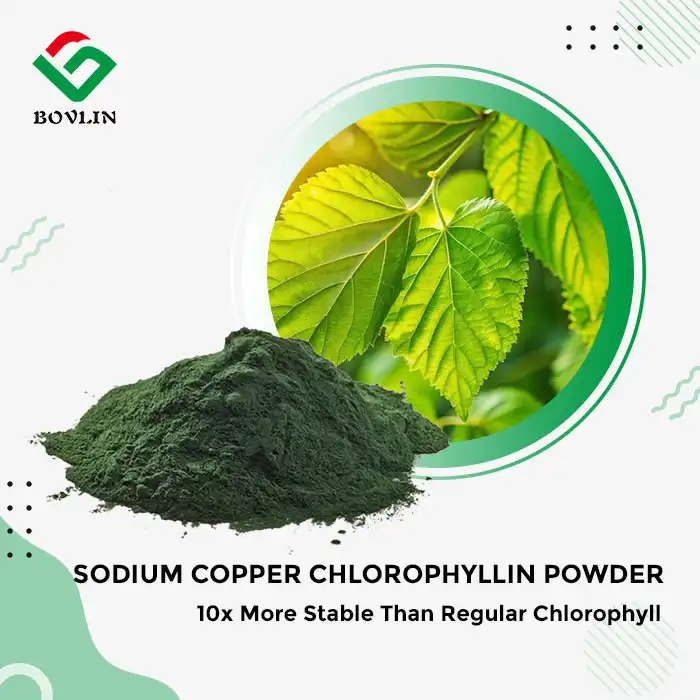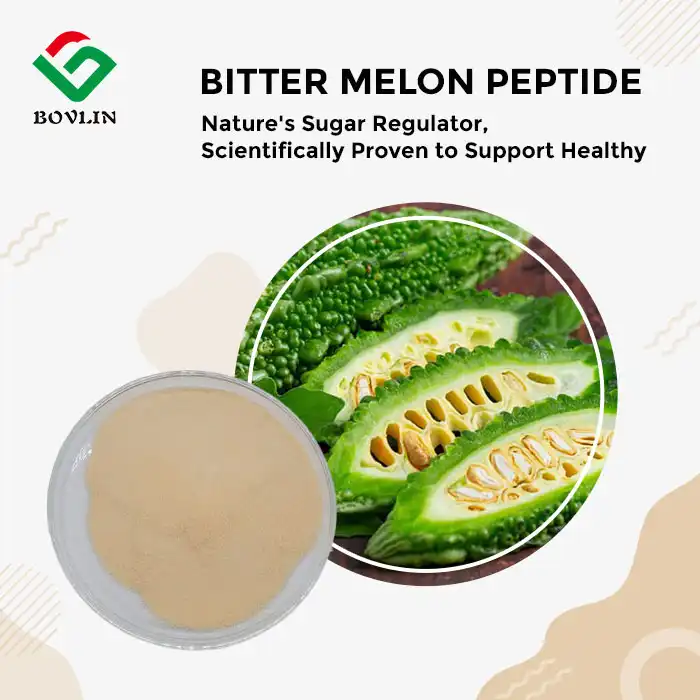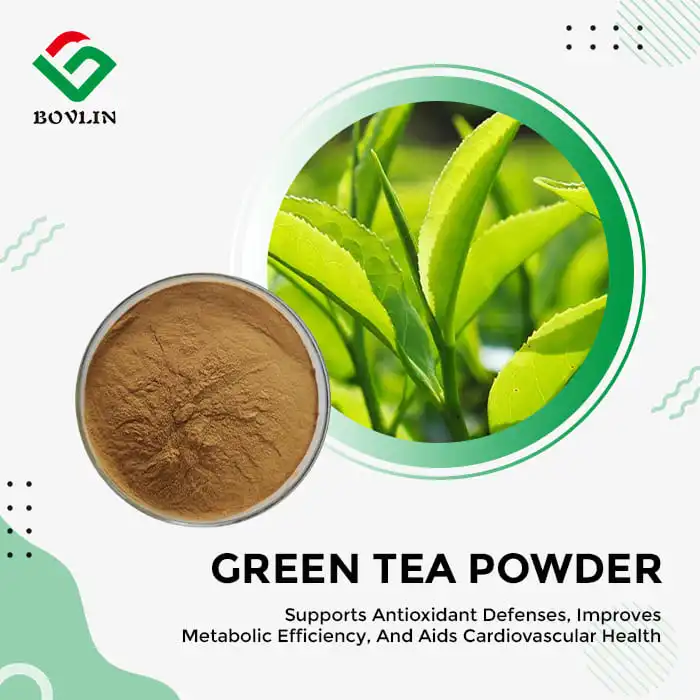What Compounds Contribute to Its Antioxidant Capacity?
Polyphenols and Flavonoids
Bitter melon peptide boasts a rich profile of polyphenols and flavonoids, which are renowned for their antioxidant properties. These compounds, including gallic acid, catechin, and quercetin, play a crucial role in neutralizing free radicals and preventing oxidative damage. The synergistic effect of these various polyphenolic compounds enhances the overall antioxidant capacity of bitter melon peptide, making it a powerful tool in combating oxidative stress.
Unique Peptide Sequences
The antioxidant power of bitter melon peptide is significantly attributed to its unique peptide sequences. These sequences, composed of specific amino acid arrangements, exhibit remarkable free radical scavenging abilities. Research has identified several peptide fractions within bitter melon that demonstrate superior antioxidant activity compared to traditional antioxidants. The structural characteristics of these peptides allow them to interact effectively with free radicals, neutralizing their harmful effects and protecting cellular components from oxidative damage.
Vitamins and Minerals
Complementing its peptide and polyphenol content, bitter melon peptide contains a range of vitamins and minerals that contribute to its antioxidant properties. Vitamin C, a potent antioxidant in its own right, works synergistically with other compounds to enhance the overall antioxidant capacity of the body. Additionally, minerals such as selenium and zinc, found in bitter melon peptide, play crucial roles in supporting antioxidant enzymes within the body, further bolstering its protective effects against oxidative stress.

Free Radical Scavenging and Cellular Protection
Mechanisms of Free Radical Neutralization
Bitter melon peptide exhibits remarkable free radical scavenging abilities through various mechanisms. Its peptide sequences and polyphenolic compounds act as electron donors, effectively neutralizing unstable free radicals by providing them with the missing electron. This process prevents free radicals from attacking cellular structures in search of electrons, thereby reducing oxidative damage. The diverse array of antioxidant compounds in bitter melon peptides allows it to target multiple types of free radicals, providing comprehensive protection against oxidative stress.
Protection of Cellular Membranes and DNA
One of the most significant benefits of bitter melon peptide, also known as polypeptide k, is its antioxidant activity ability to protect cellular membranes and DNA from oxidative damage. Free radicals can cause lipid peroxidation, a process that damages cell membranes and impairs cellular function. Bitter melon peptides' antioxidant compounds intercept these free radicals before they can initiate lipid peroxidation, preserving membrane integrity. Moreover, the peptide's protective effects extend to DNA, shielding genetic material from oxidative damage that could lead to mutations and cellular dysfunction.
Enhancing Endogenous Antioxidant Systems
Beyond its direct free radical scavenging abilities, bitter melon peptide has been shown to enhance the body's endogenous antioxidant systems. Research suggests that it can upregulate the expression and activity of antioxidant enzymes such as superoxide dismutase, catalase, and glutathione peroxidase. By boosting these natural defense mechanisms, bitter melon peptide provides a dual approach to combating oxidative stress, both directly neutralizing free radicals and empowering the body's antioxidant capabilities.
Applications in Anti-aging and Chronic Disease Prevention
Skin Health and Anti-aging Potential
The potent antioxidant properties of bitter melon peptide make it a promising ingredient in anti-aging formulations. Its ability to neutralize free radicals and protect against oxidative damage can help prevent premature aging of the skin. By safeguarding collagen and elastin fibers from oxidative stress, bitter melon peptide may contribute to maintaining skin elasticity and reducing the appearance of fine lines and wrinkles. Furthermore, its potential to enhance the skin's natural antioxidant defenses could provide long-term protection against environmental stressors that accelerate skin aging.
Cardiovascular Health Support
Oxidative stress plays a significant role in the development and progression of cardiovascular diseases. Bitter melon peptide, also known as bitter gourd peptide, has antioxidant capabilities that may offer protective benefits for heart health. By reducing oxidative damage to blood vessels and lipoproteins, it could help maintain vascular health and prevent the oxidation of LDL cholesterol, a key factor in atherosclerosis development. Additionally, the peptide's potential to support endothelial function through its antioxidant effects may contribute to overall cardiovascular wellness.
Neuroprotective Effects
The brain is particularly vulnerable to oxidative stress due to its high oxygen consumption and lipid content. Bitter melon peptides' antioxidant properties show promise in providing neuroprotection. By combating oxidative damage in neural tissues, it may help preserve cognitive function and potentially reduce the risk of neurodegenerative disorders. Research suggests that the peptide's ability to cross the blood-brain barrier could allow it to directly exert its antioxidant effects within the central nervous system, offering a novel approach to supporting brain health and preventing age-related cognitive decline.

Conclusion
Bitter melon peptide stands out as a powerful antioxidant with multifaceted benefits. Its unique composition of bioactive compounds, including specific peptide sequences, polyphenols, and essential nutrients, contributes to its impressive free radical scavenging abilities and cellular protection. As research continues to uncover the full potential of bitter melon peptide, its applications in anti-aging, cardiovascular health, and neuroprotection are becoming increasingly apparent. The versatility and efficacy of this natural antioxidant make it a valuable ingredient for manufacturers seeking to enhance their products with potent, plant-based solutions for oxidative stress-related concerns.
Contact Us
Are you interested in harnessing the antioxidant power of bitter melon peptide for your products? Discover how our high-quality bitter melon peptide can elevate your formulations and provide unparalleled antioxidant benefits. Contact us today at sales1@bovlin.com to learn more about incorporating this innovative ingredient into your product line.











